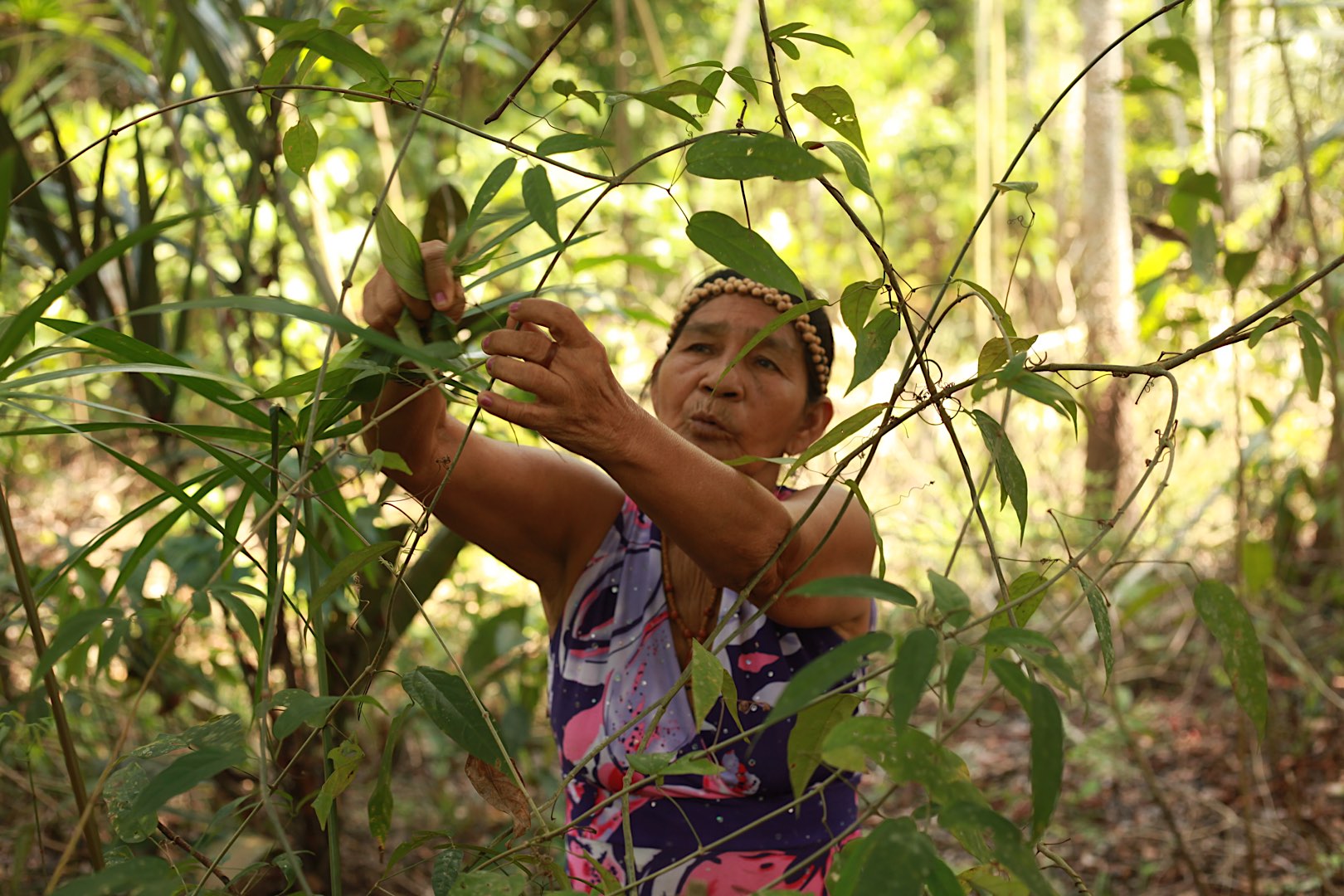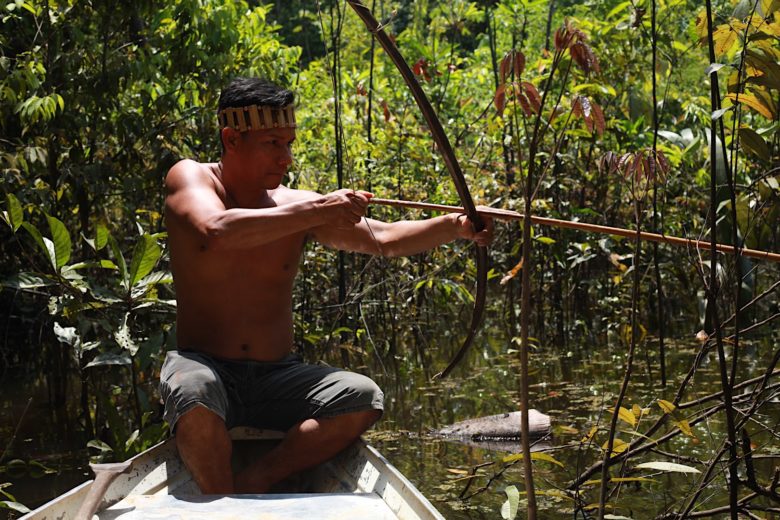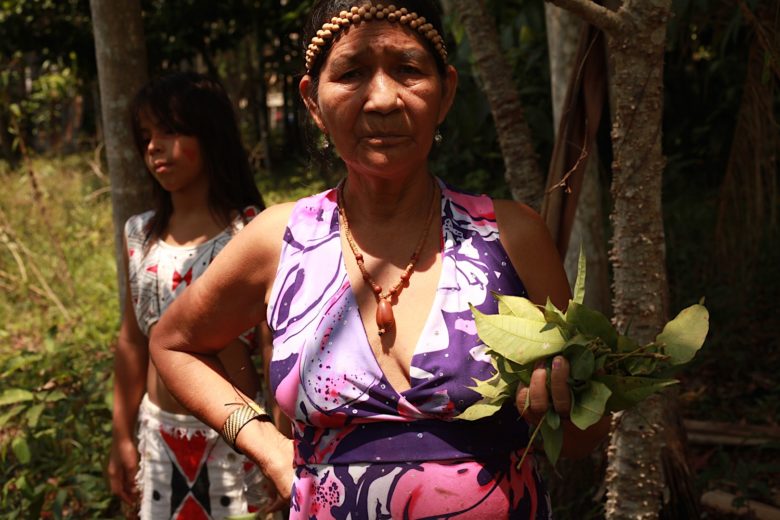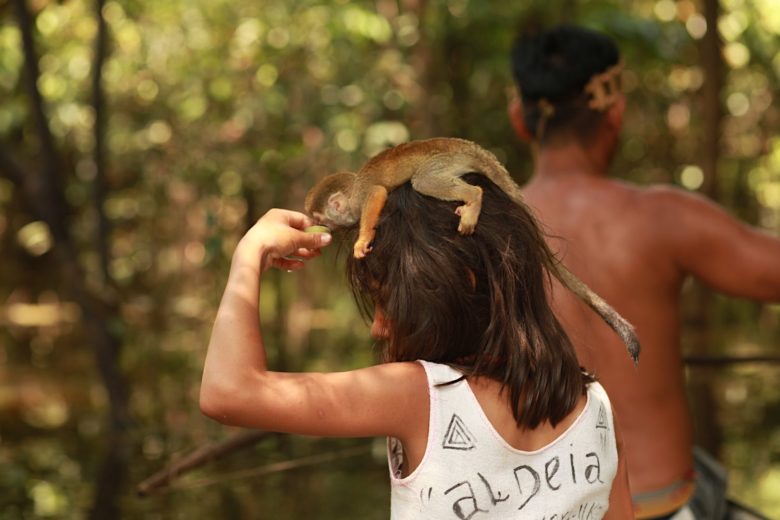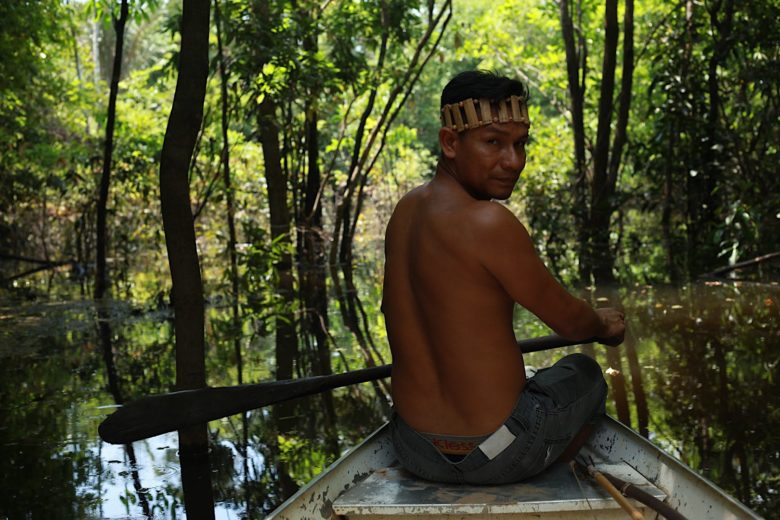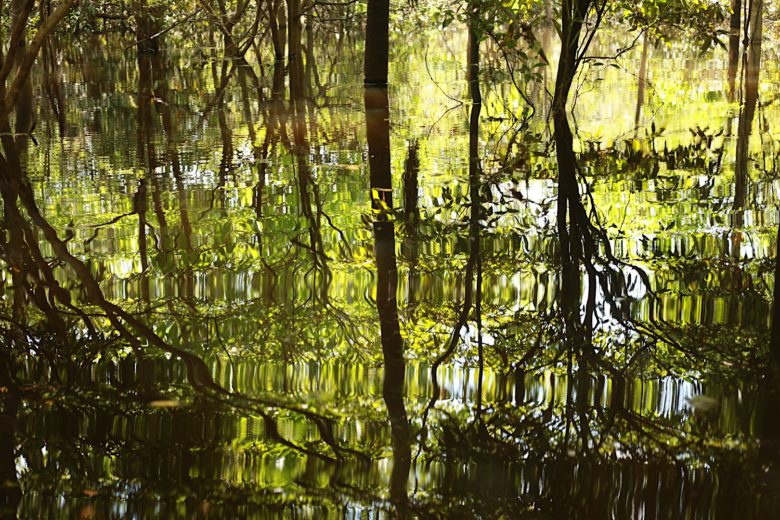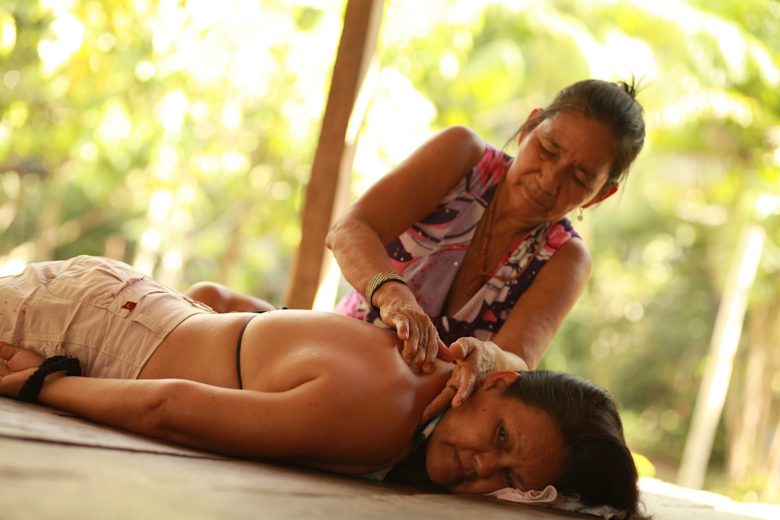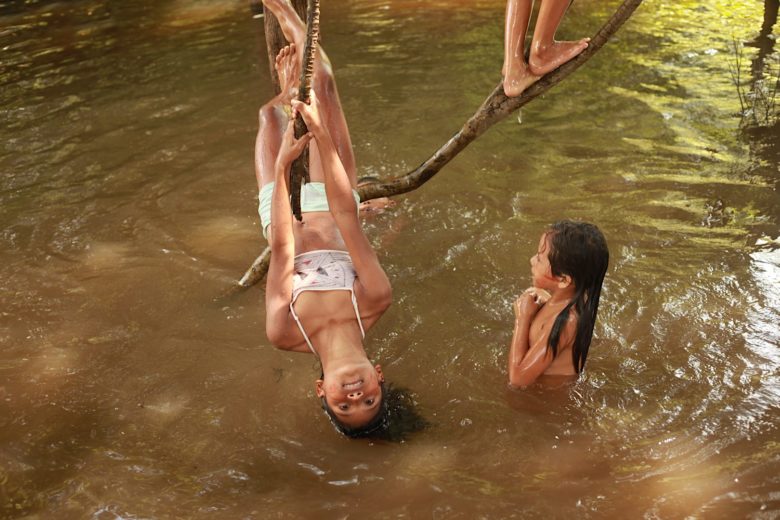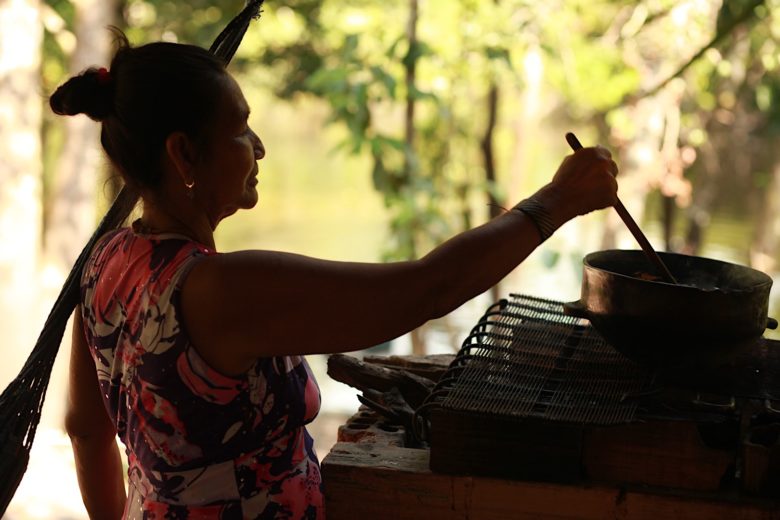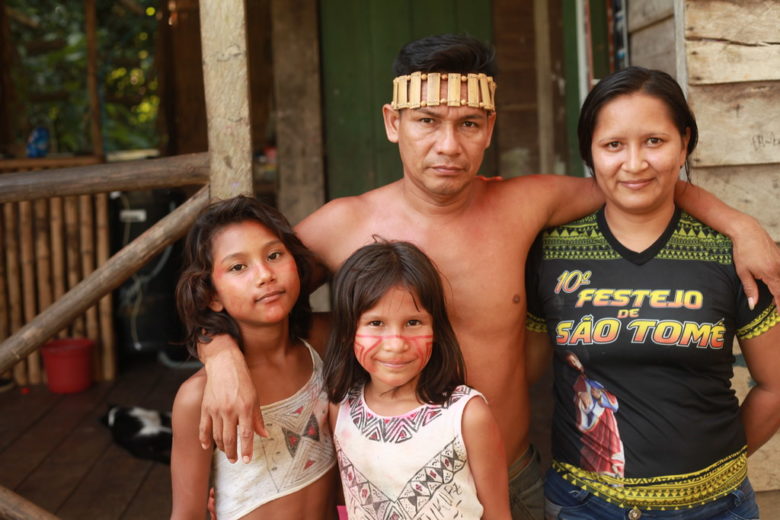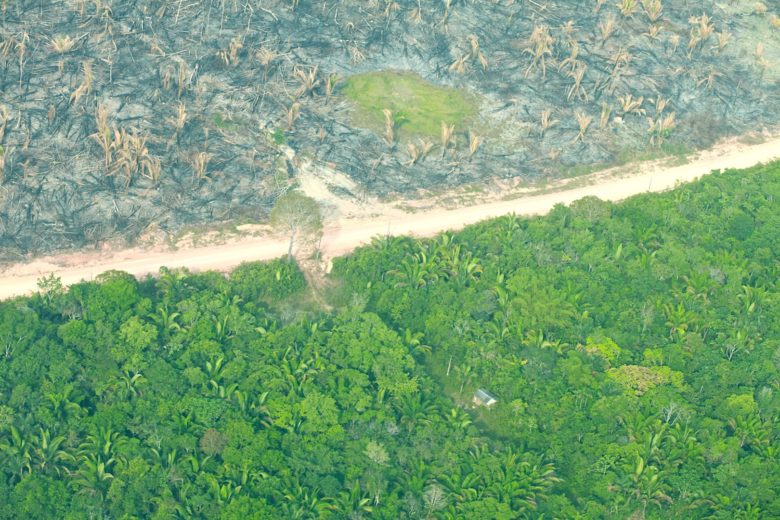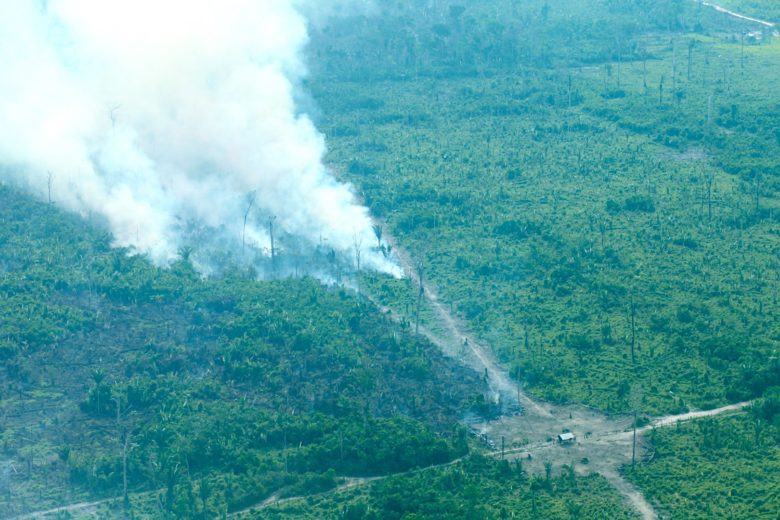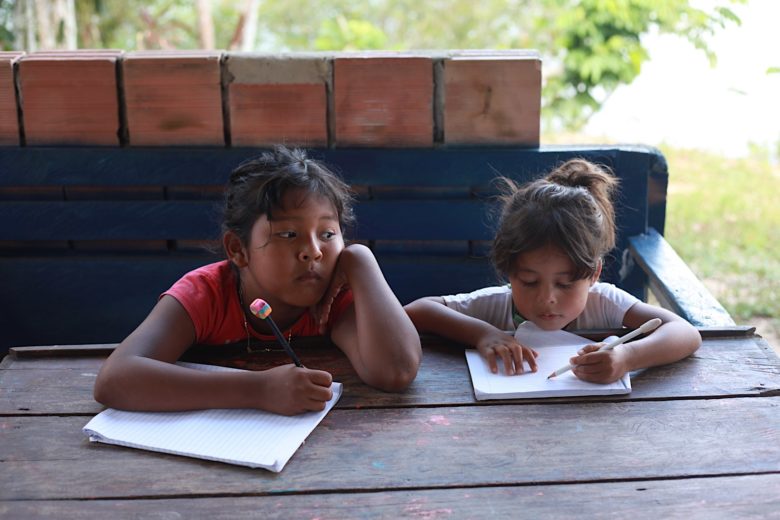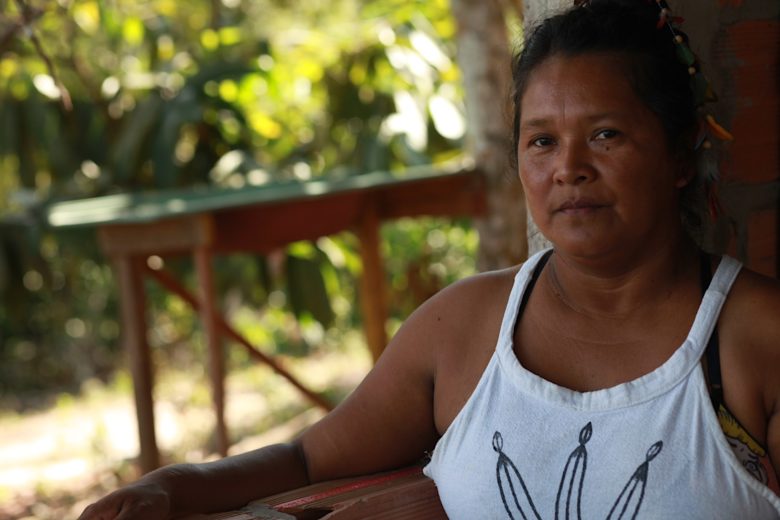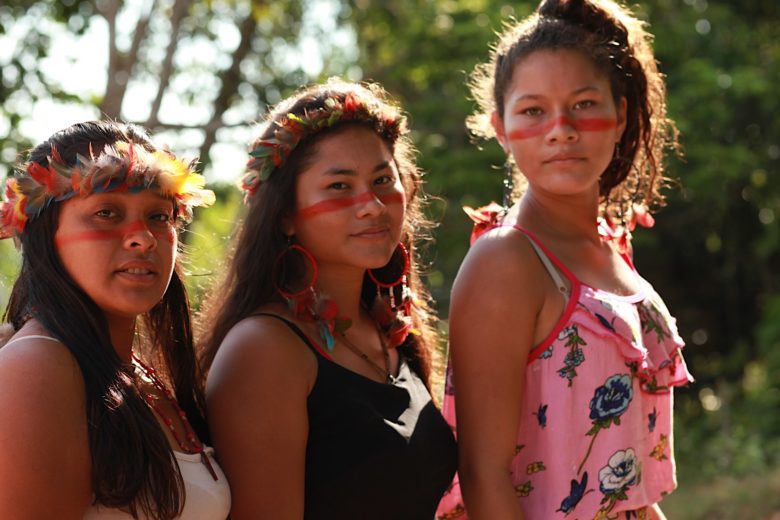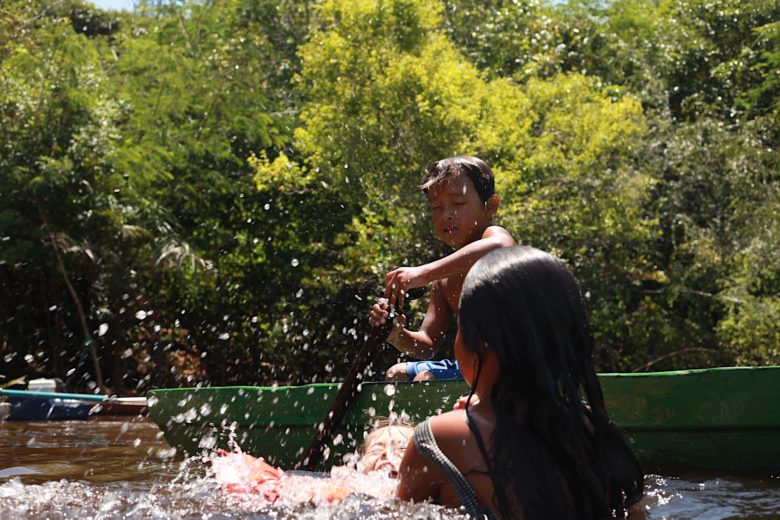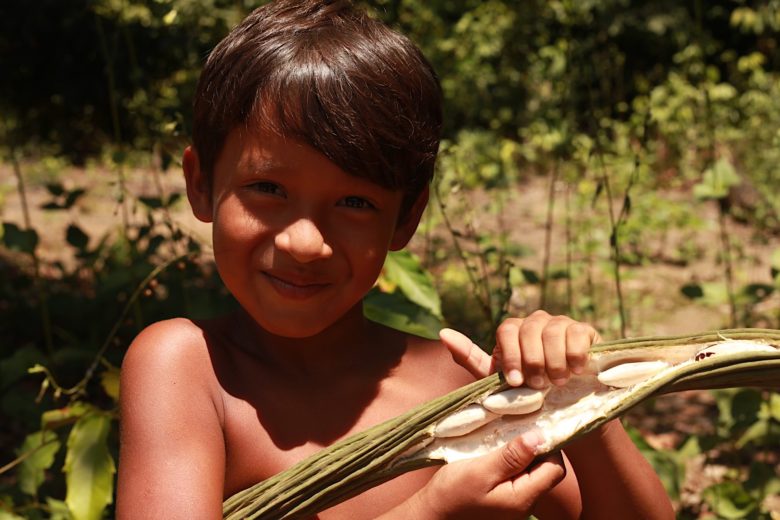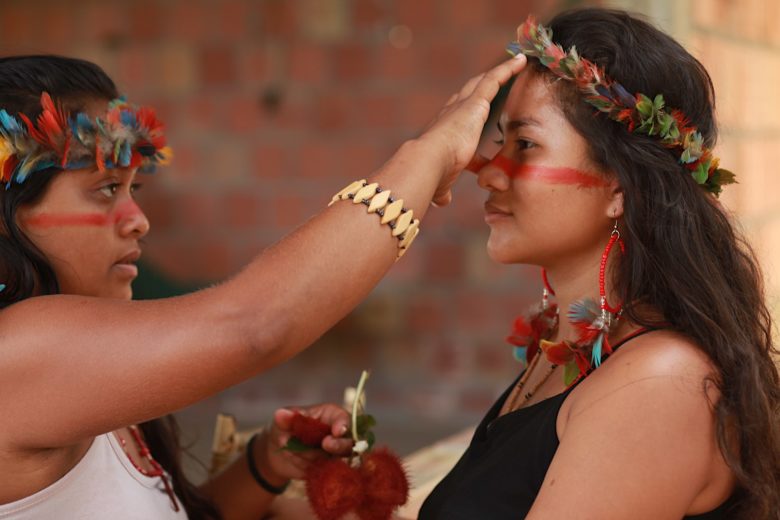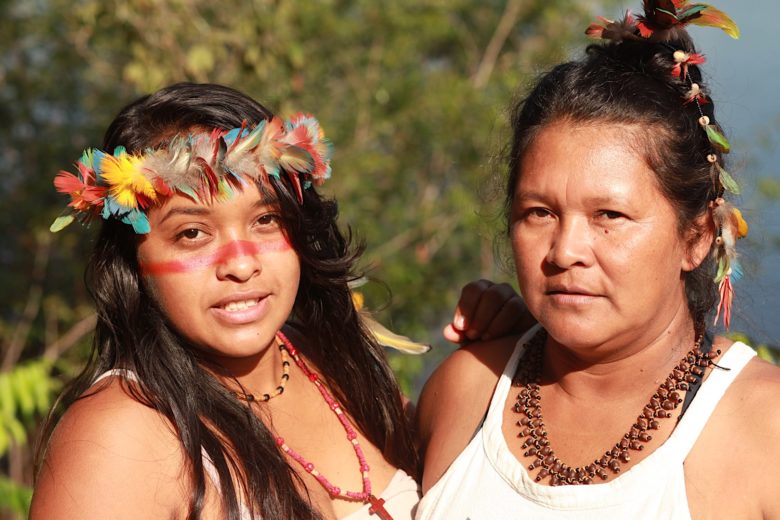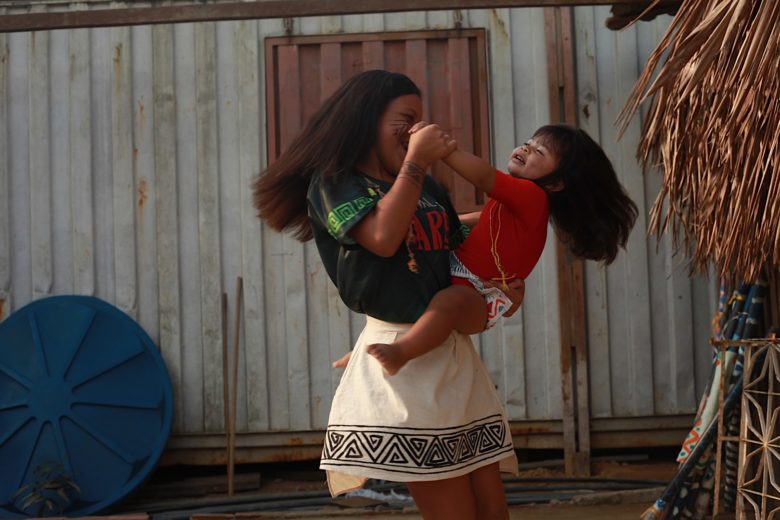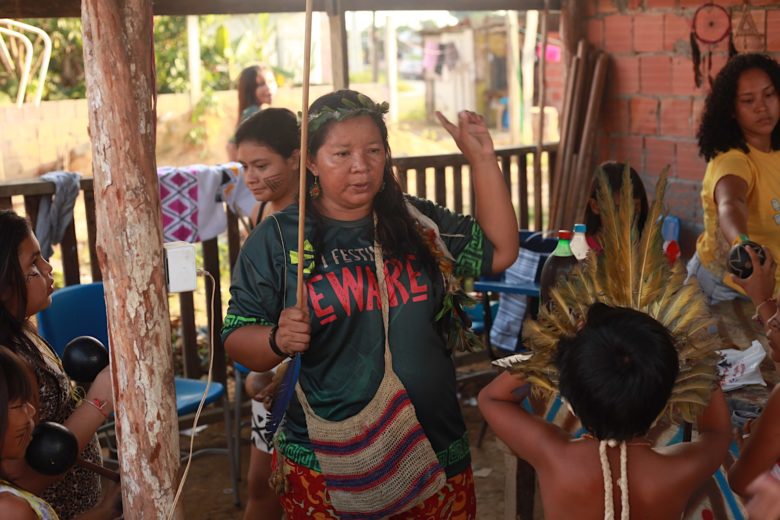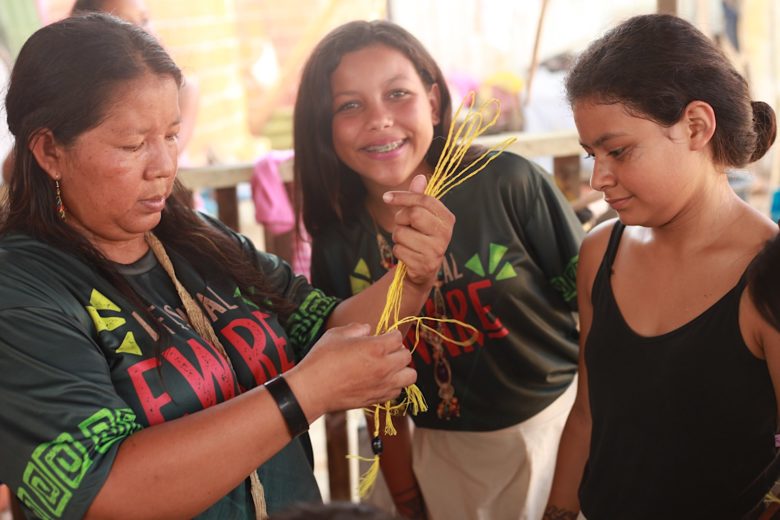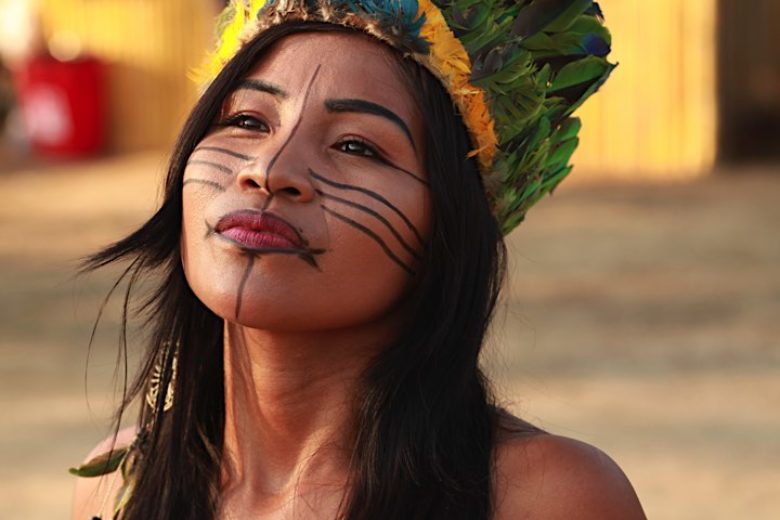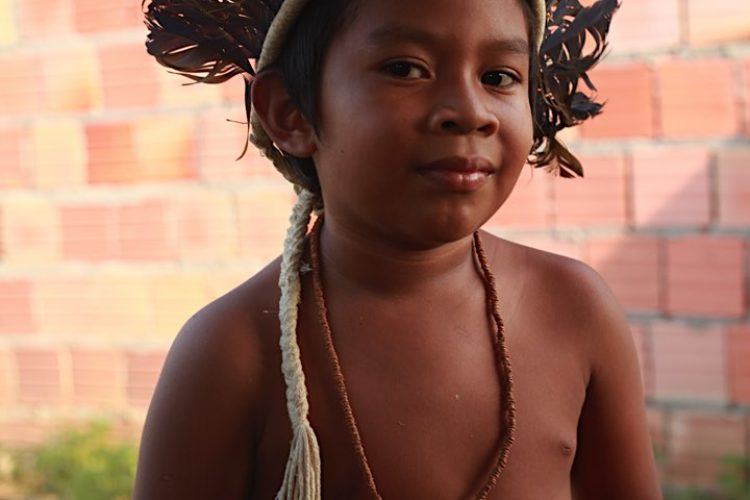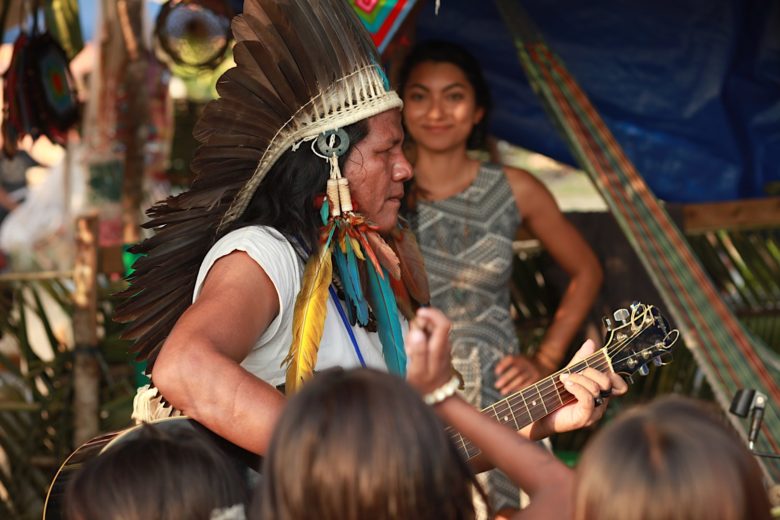The unbearable pressures on the rural peoples of the Amazon have driven huge numbers into cities. Urban areas now hold 70-80 per cent of the population of the Amazon, many living in highly vulnerable conditions.
Caritas in the Archdiocese of Manaus is supporting them to face the challenges of city life, to understand their rights and preserve their indigenous heritage.
“I really want the kids not to lose touch with their roots,” says Claudia, a teacher at the Caritas-supported Wakenai Anumarehit cultural centre in Parque das Tribos in Manaus, which was the city’s first indigenous settlement.
Claudia, who is from the Baré tribe, put herself through university at 36 so she could start a centre teaching indigenous culture and language:
“The problems were enormous, especially with the lack of schools nearby. I saw the children hanging around aimlessly. I felt I had to do something for them.”
Her other motivation was personal. Her son Tomas announced one day that he wished he weren’t indigenous, because then he wouldn’t get bullied. She wanted to make him proud of who he was.
This year Claudia’s neighbourhood started its own cultural festival and her pupils, who come from 38 tribal groups, loved taking part in indigenous dance, rituals, music, food and crafts.
“Our unity has given us all strength,” declares Claudia. “We’re not waiting around to get help from public institutions. We are doing it for ourselves.”
On the far east side of Manaus, Caritas supports teacher Omaida as she works with children of Tikuna origin, the biggest tribe in the Brazilian Amazon. “We started our centre 16 years ago,” she explains, “to promote our indigenous culture, music and art.”
Her students learn language, songs and art. Their families make and sell traditional Tikuna crafts including ritual adornment: feather headdresses and beaded necklaces. Caritas is helping them look for a commercial space and working with their community association to demand their legal rights to healthcare, education, decent housing and jobs.
Across the Amazon region, traditional peoples are trying to find a sustainable way of life and retain their identity – whether holding out in the rainforest or attempting a new existence in the city. The Caritas network is constantly seeking new ways to support and serve them, and so we welcome the Synod as it turns the eyes of the world towards their future, and our shared human destiny. As Cardinal Pedro Barreto of REPAM says:
“Taking care of the Amazon is taking care of humanity.”
The bishops of Brazil have sent out a powerful invocation to act before it is too late:
“It is time to speak, to listen and to act … to protect the Amazon, its ecology and its traditional and indigenous peoples, our brothers and sisters. If we do not commit ourselves in this way, we will suffer irreparable loss.”

